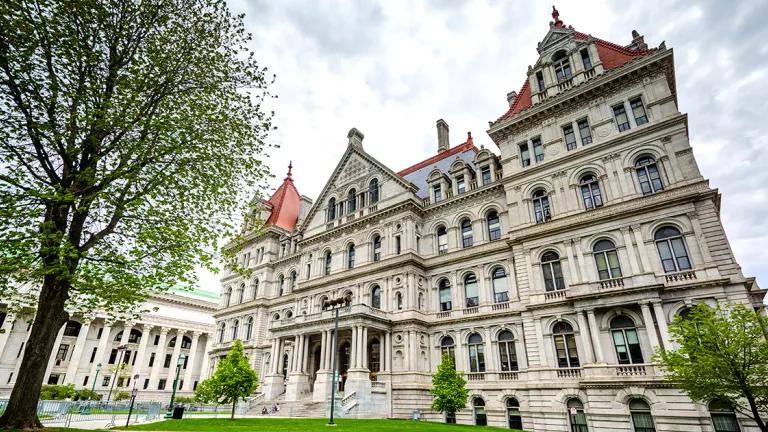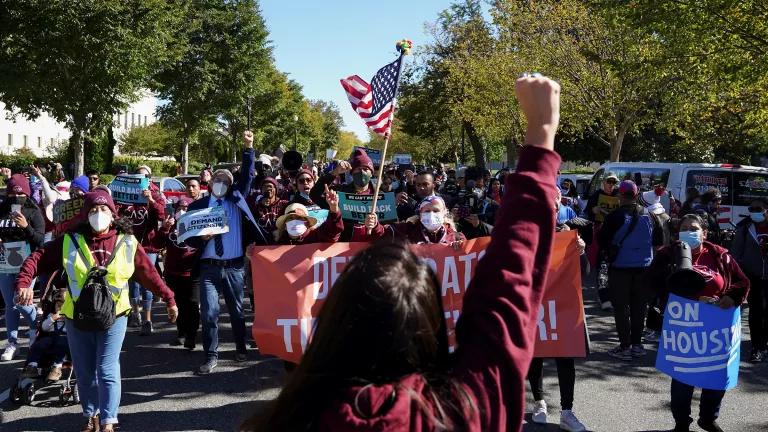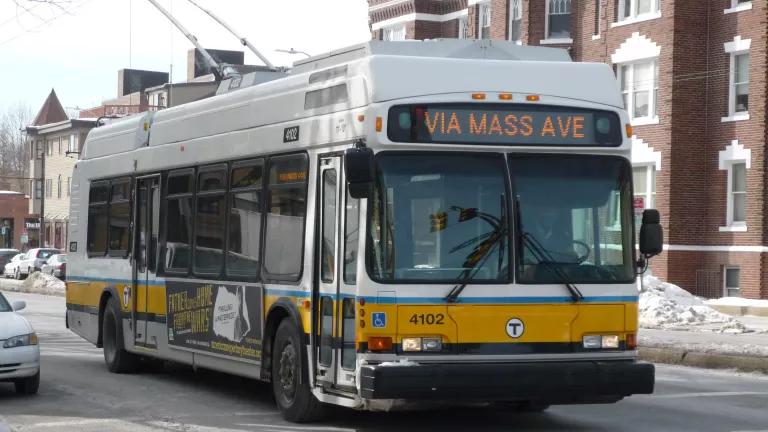Here's how we can cut petroleum dependence: use the Transportation Special Session to give Californians real transportation choices
Anyone who watched the Governor's press conference last night about amendments to SB 350 knows that the Governor, pro Tem de León and Speaker Atkins are more bullish than ever about cutting our dependence on petroleum.
And here's the good news: we have a perfect opportunity to do so, right now.
Governor Brown and California legislators need to seize the opportunity presented by their "Transportation and Infrastructure Development Extraordinary Session" -expected to yield between $3.6 - $6 billion a year in new revenues--to give Californians affordable transportation choices that allow them to get around without consuming oil. It has never been clearer than this.
As I rode Amtrak's Capitol Corridor train from Emeryville to Sacramento this morning, seething with frustration at the oil companies' deceitful lobbying tactics, I was so pleased that I did not have to purchase a single drop of gasoline to get where I needed to go. Knowing that the oil companies spend millions annually trying to stop our climate progress makes it a nearly impossible decision to choose the least among evils when you have to fill up your tank. So I try not to. This is the privilege we can and should provide for every Californian--enable people to get around in ways that are not hostage to volatile oil prices.
It's been clear for months that California's strategies for addressing the state's $137 billion transportation maintenance shortfall should further our global leadership on climate change and social equity. The removal of the petroleum reduction goal from SB 350 only provides more reason to seize this opportunity to clean our air and help provide transportation options with stable prices.
The Administration recently released a 73-page proposal for addressing the transportation maintenance shortfall. And on Tuesday, the Governor's office provided a series of quotes entitled, "What They're Saying About Governor Brown's Plan to Fix California's Transportation Infrastructure" but missing from the voices listed were those of us who represent the public interest-- environmental, health, and equity advocates.
I'd like the opportunity to add some of those responses here. Here's what we're saying:
1) Investments from the new Road Maintenance and Rehabilitation Account should be transparent, performance-driven and aligned with the state's climate, health, and equity goals. Amendments recently added to Senator Beall's SBX1-1 that require the state to consider a project's expected impact on greenhouse gas emissions, public health, social equity, and natural lands should be incorporated into the Governor's proposal. All projects should be required to be consistent with adopted regional plans to reduce greenhouse gas emissions via SB 375. State-funded projects should maximize environmental and economic benefits, especially in disadvantaged communities; and projects should serve all travelers as Caltrans Deputy Directive 64-R1 from 2008 (and updated in 2014) already establishes.
2) Reducing costs is a smart approach to addressing the transportation funding shortfall, but creating huge loopholes in the California Environmental Quality Act (CEQA)-our state's core environmental law--is not an answer. CEQA is a convenient punching bag, but claims as to its unintended consequences are vastly overstated. CEQA provides the public with critical information and the opportunity to participate in a transparent process. We oppose the proposed CEQA exemption.
3) We support increased investments in transit. Any solution to our road maintenance shortfall must include improvements to sustainable transportation options. However, allocations from the Greenhouse Gas Reduction Fund in particular should not come at the expense of other programs needed to meet federal air quality standards and state greenhouse gas emission reduction targets, including the suite of "Low Carbon Transportation" and natural and working lands conservation programs prioritized in the budget proposed by the governor in May. Senators Allen and Chiu addressed transit funding needs more appropriately with SBX1-7 and ABX1-8.
4) Investments in Trade Corridor projects should be focused on maintenance, not expansion. Projects should be consistent with the governor's recent Executive Order B-32-15 on freight, and all projects should be assessed according to transparent, performance measures consistent with the state's climate and equity goals.
5) New funding should help achieve an integrated, multi-modal transportation system that includes transit maintenance and, critically, operations. New revenues should focus on transportation, but no proposed Constitutional amendments should undermine the state's ability to use the revenue for sustainable transportation purposes. By contrast, an effort as significant as a constitutional amendment should seek to answer the question whether the current Article XIX restrictions--revenues can only be spent on streets, highways, and limited transit uses--are appropriate given California's climate and equity goals.
6) The Low Carbon Road Program includes important reference to Complete Streets investments, and we support the set-aside for disadvantaged communities. But this proposal falls far short of Beall's plan, which requires context-dependent Complete Streets improvements on all state-funded highway road projects. Further, this proposal creates a brand new and untested program, when the state already has a successful and underfunded similar entity--the Active Transportation Program. In comparison, we support Assemblymember Eduardo Garcia's ABX1-23, which appropriates $125 million from the State Highway Account to create walking and bicycling network grants through the Active Transportation Program.
7) We appreciate the inclusion of the Caltrans Advanced Mitigation Program, but we are concerned that this particular proposal lacks the mitigation planning and regional conservation framework to protect or restore high priority conservation lands, which will result in more effective and efficient mitigation to protect natural resources in state infrastructure projects such as roads and levees.
There is a new wind in the sails of the Special Session. We look forward to working with the Administration and Legislature on strategies that address our transportation maintenance shortfall and help clean our air and improve our health.
We want to acknowledge the California Bicycle Coalition, California Pan-Ethnic Health Network, California Walks, Leadership Counsel for Justice and Accountability, The Nature Conservancy, PolicyLink, Public Advocates, TransForm, Safe Routes to Schools National Partnership, and many others for their on-going work to ensure strategies developed in the Special Session are aligned with climate, health, and equity goals.



